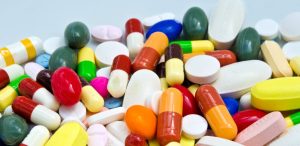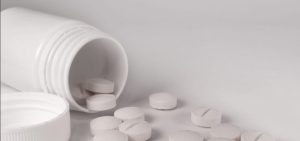Table of Contents
Is Modafinil an effective treatment for ADHD and depression?
Modafinil for ADHD and depression :
There is little debate about Modafinil’s effectiveness. Indeed, its cognitive enhancing functions have well-matched with the current demand for a focus-driven and fast-paced lifestyle.
Although this smart drug is technically approved for the treatment of sleep disorders, it has been used for several unapproved purposes without any potential hazards. It goes without saying that misusing any substance is unethical. However, this does not make everything black and white, and this is what we will try to illuminate in this article.
What exactly is ADHD?
Attention Deficit Hyperactivity Disorder (ADHD) is a chronic condition characterized by an inability to focus on and complete a single task. Individuals with ADHD frequently describe hyperactivity, low concentration, being impulsive, and making unintelligently impulsive choices.
ADHD is frequently under-reported and difficult to detect. Even less severe cases necessitate appropriate therapy to control the symptoms without jeopardizing vital life duties. Unfortunately, the most commonly utilized medication for ADHD is Adderall and Ritalin.
While amphetamine (Adderall) and methylphenidate (Ritalin) have traditionally been used to treat attention deficit problems, an increasing number of people are raising concerns about the high risk of adverse effects associated with these medications.
Modafinil Use for ADHD
Modafinil is viewed as a potential alternative medicine for treating symptoms of ADHD as various anecdotal reports suggested. Nonetheless, officials pointed out that the study was too small, and hence the evidence was insufficient to indicate anything evident.
In spite of several research indicating that Modafinil can alleviate ADHD symptoms, the United States has not officially authorized Modafinil as a drug to treat this illness. Despite these limits, clinicians are still permitted to administer this medicine for this purpose under FDA regulations if they believe it is the most appropriate course of therapy. As a result, many people in the United States are lawfully taking Modafinil for ADHD, and they are seeing some astounding improvements with a considerably lower chance of adverse effects.
When using Modafinil, users report that they are considerably more driven to complete tasks and that they do not experience as much mental strain when working or reading for long periods of time. It is known to improve mental performance, reasoning, and analytical skills, as well as memory capacity, which is why many people regard it as an allrounder cognitive booster.
These are all areas that can help people with ADHD, so it’s only reasonable that researchers would investigate the benefits of such a therapeutic use. Over the last decade, there has been a flood of research indicating Modafinil’s usefulness in boosting attention processing and executive function specifically in ADHD patients.
It was found, the attention-promoting drug modafinil alleviated symptoms of attention-deficit/hyperactivity disorder (ADHD) in children and adolescents in a 4-week, double-blind, placebo-controlled study and was well tolerated. An 8-week open-label trial was done as an extension to the double-blind study to examine the sustained efficacy of modafinil and acquire new safety data.
During the open-label study, modafinil remained efficacious and well-tolerated in children with ADHD, improving ADHD symptoms and overall clinical status. The study’s limitations include open-label dosing and the absence of a placebo control.
In Another study conducted in 2008 a secondary analysis using data from three double-blind, placebo-controlled studies, assessed the efficacy of modafinil in children and adolescents by subtype of attention-deficit/hyperactivity disorder (ADHD). The study concluded Modafinil improved ADHD symptoms and behaviors in patients with inattentive and mixed subtypes, according to teachers, researchers, and parents.
While Modafinil shares many similarities with existing ADHD therapy medicines such as Adderall and Ritalin, it has a considerably lower risk of side effects. Also, drug dependence and potential for abuse is very low for modafinil when compared to Adderall and Ritalin. Unfortunately, when the pharmaceutical company Cephalon asked to have ADHD added to the list of approved disorders for which Modafinil could be administered, the FDA declined.
The FDA made its conclusion based only on a single adverse event report in which a kid got a skin rash. His doctor classified the rash as Stevens-Johnson syndrome, and despite the fact that it was not definitely related to Modafinil use, the FDA opted to restrict it as a treatment for ADHD. This verdict drew a lot of criticism because it was merely one case in a trial involving over 1,000 people. The FDA was further embarrassed when the doctor who provided the initial diagnosis later reversed his diagnosis. Despite this judgment, physicians in the United States can still prescribe Modafinil as an off-label medicine for ADHD.
It is estimated that 90% of Modafinil prescriptions written in the United States are for unauthorized uses. While it is still recommended against administering modafinil to children, it is still regarded as an effective treatment for adult ADHD.
Modafinil for depression
Depression is one of the most common mental illnesses worldwide. Most people, regardless of where they live, experience a mild-to-major depressive episode at some point in their lives. Unfortunately, clinical depression creates a vicious cycle in which certain chemical imbalances lead to symptoms such as fatigue, extreme sleepiness, appetite suppression, loss of interest in pleasurable things, and hopelessness, which can lead to serious issues in an individual’s personal, professional, and interpersonal life and relationships.
In recent years, comprehensive trials on modafinil have been undertaken, and researchers have determined that modafinil does relieve symptoms of depression.
In one study, Cambridge researchers noticed that when individuals were given modafinil together with antidepressants, they saw considerable improvements. Barbara Sahakian, a Cambridge researcher, cites
“Modafinil has actions on a number of neurotransmitter systems. This may explain why adding it to traditional antidepressants, such as selective serotonin reuptake inhibitors, has beneficial effects on the symptoms experienced by depressed patients.”
The study demonstrated how the symptomatic benefits of modafinil use can help with depression-related concerns. Depression can result in a loss of focus, weariness, and thus decreased productivity as a result of absenteeism from work.
Modafinil is recommended by mental health therapists to treat mood disorders such as bipolar disorder and seasonal affective disorder. According to research, modafinil can help with depressive symptoms associated with certain diseases.
If you have any further questions about Modafinil for ADHD and depression then comment below.
Listen to the podcast of this blog:







Add comment